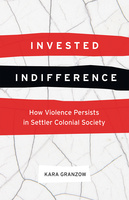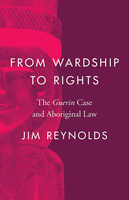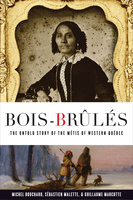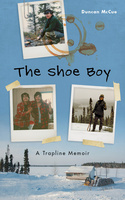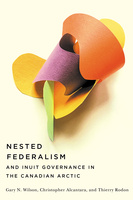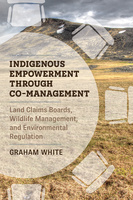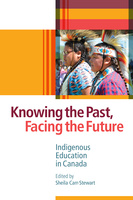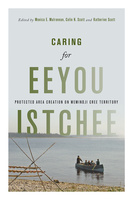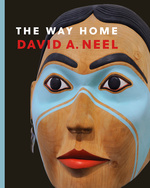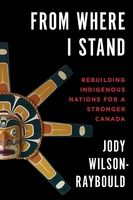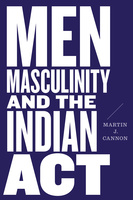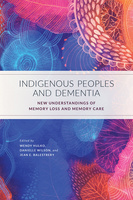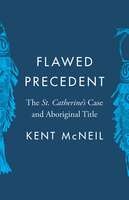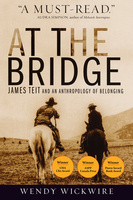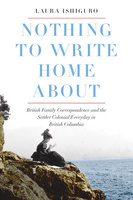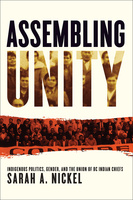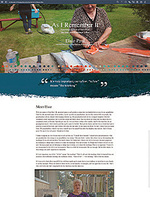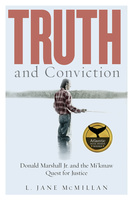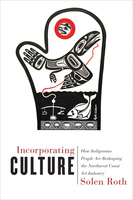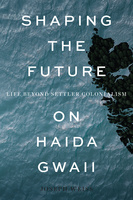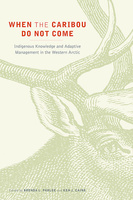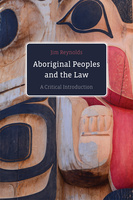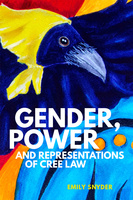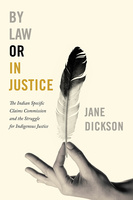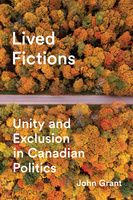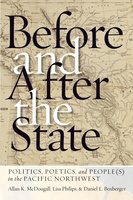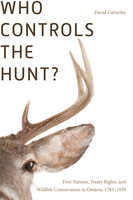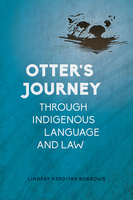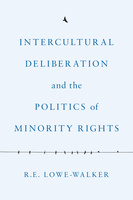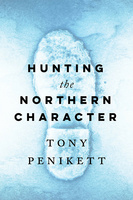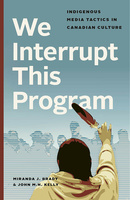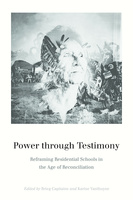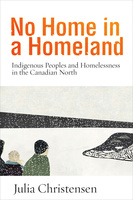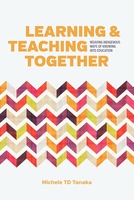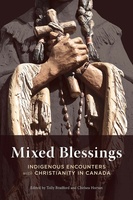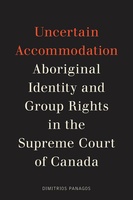Invested Indifference
How Violence Persists in Settler Colonial Society
Invested Indifference exposes the tenacity of violence against Indigenous people, arguing that some lives are made to matter – or not – depending on their relation to the settler-colonial nation state.
From Wardship to Rights
The Guerin Case and Aboriginal Law
This thoughtful and engaging examination of the Guerin case shows how it changed the relationship between governments and Indigenous peoples from one of wardship to one based on legal rights.
Bois-Brûlés
The Untold Story of the Métis of Western Québec
Bois-Brûlés shatters the prevailing orthodoxy that Métis communities are found solely in western Canada by demonstrating that a distinct community emerged in the fur trade frontier of Quebec in the early nineteenth century and persists to this day.
The Shoe Boy
A Trapline Memoir
The Shoe Boy is an evocative exploration of Indigenous identity and connection to the land, expressed in guise of a unique coming-of-age memoir set on a trapline in northern Quebec.
Nested Federalism and Inuit Governance in the Canadian Arctic
Nested Federalism and Inuit Governance in the Canadian Arctic explores how three northern regions are reformulating the relationship between Indigenous peoples and the state, and transforming Canadian federalism in the process.
Indigenous Empowerment through Co-management
Land Claims Boards, Wildlife Management, and Environmental Regulation
This book is a clear, compelling, and evidence-based assessment of the effectiveness of co-management boards in providing Indigenous peoples with genuine influence over land and wildlife decisions affecting their traditional territories.
Knowing the Past, Facing the Future
Indigenous Education in Canada
Knowing the Past, Facing the Future offers a sweeping account of Indigenous education in Canada, from the first treaty promises and the failure of government-run schools to illuminating discussions of what needs to change now to work toward reconciliation.
Caring for Eeyou Istchee
Protected Area Creation on Wemindji Cree Territory
In Caring for Eeyou Istchee, Indigenous and non-Indigenous partners reveal how protected area creation presents a powerful vehicle for Indigenous stewardship, biological conservation, and cultural heritage protection.
The Way Home
Crafted from memories, legends, and art, this powerful memoir tells the uplifting story of an Indigenous man’s struggle to reconnect with his culture and walk in the footsteps of his father and the generations of Kwakwa̱ka̱’wakw artists that came before him.
From Where I Stand
Rebuilding Indigenous Nations for a Stronger Canada
Jody Wilson-Raybould outlines in impassioned, inspiring prose the actions that must be taken by governments, Indigenous Nations, and all Canadians to achieve true reconciliation in this country.
Men, Masculinity, and the Indian Act
Men, Masculinity, and the Indian Act reverses conventional thinking to argue that the sexism directed at women within the act in fact undermines the well-being of all Indigenous people, proposing that Indigenous nationhood cannot be realized or reinvigorated until this broader injustice is understood.
Indigenous Peoples and Dementia
New Understandings of Memory Loss and Memory Care
Indigenous People and Dementia brings together research and Indigenous knowledge on memory loss and memory care in later life to assist students, practitioners, and educators to decolonize their work with Indigenous peoples.
Flawed Precedent
The St. Catherine’s Case and Aboriginal Title
This illuminating account of the St. Catherine’s case of the 1880s reveals the erroneous assumptions and racism inherent in judgments that would define the nature and character of Aboriginal title in Canadian law and policy for almost a century.
At the Bridge
James Teit and an Anthropology of Belonging
At the Bridge lifts from obscurity the story of James Teit (1864–1922), an outstanding Canadian ethnographer and Indian rights activist whose thoughtful scholarship and tireless organizing have been largely ignored.
Métis Politics and Governance in Canada
This timely book offers a novel, practical guide for understanding who the Métis are and the challenges they face on the path to self-government.
Nothing to Write Home About
British Family Correspondence and the Settler Colonial Everyday in British Columbia
The first substantial study of family correspondence and settler colonialism, Nothing to Write Home About elucidates the significance of trans-imperial intimacy, epistolary silence, and the everyday in laying the foundations of settler colonialism in British Columbia.
Assembling Unity
Indigenous Politics, Gender, and the Union of BC Indian Chiefs
Assembling Unity traces the history of pan-Indigenous unity in British Columbia through political negotiations, gendered activism, and the balance and exercise of power.
As I Remember It
Teachings (Ɂəms tɑɁɑw) from the Life of a Sliammon Elder
Meet Elder Elsie Paul and discover her stories, family history, and teachings – ʔəms tɑʔɑw – in a multimedia, online book that captures the wit and wisdom of her storytelling.
Truth and Conviction
Donald Marshall Jr. and the Mi’kmaw Quest for Justice
A passionate account of how one man’s fight against racism and injustice transformed the criminal justice system and galvanized the Mi’kmaw Nation’s struggle for self-determination, forever changing the landscape of Indigenous rights in Canada and around the world.
Incorporating Culture
How Indigenous People Are Reshaping the Northwest Coast Art Industry
Incorporating Culture examines what happens when Indigenous people assert control over the commercialization of their art by instilling the market with their communities’ values.
Shaping the Future on Haida Gwaii
Life beyond Settler Colonialism
Countering colonial ideas about Indigenous peoples being frozen in time and without a future, this provocative book explores the ways in which members of the Haida Nation are shaping myriad possible futures to address the dilemmas that come with life under settler colonialism.
When the Caribou Do Not Come
Indigenous Knowledge and Adaptive Management in the Western Arctic
When the Caribou Do Not Come highlights the knowledge and perspectives of northern Canadian communities that have been dealing with caribou population fluctuations for generations.
Aboriginal Peoples and the Law
A Critical Introduction
This introduction to contemporary Aboriginal law lays the groundwork for any assessment of Canada’s claim to be a just society for Indigenous peoples.
Gender, Power, and Representations of Cree Law
This powerful book investigates the relationship between the oversimplification of gender in representations of Cree law and its effect on perceptions of Indigenous women as legal agents and citizens.
By Law or In Justice
The Indian Specific Claims Commission and the Struggle for Indigenous Justice
This insider’s account of the work of the Indian Specific Claims Commission takes an unflinching look at the development and implementation of Indigenous claims policy from 1991 to 2009.
Practising Community-Based Participatory Research
Stories of Engagement, Empowerment, and Mobilization
Researchers engaged in community-based participatory research share stories about their work with marginalized communities, offering insights and imparting valuable lessons that will inspire others doing research with an eye to social justice.
Lived Fictions
Unity and Exclusion in Canadian Politics
Bringing big thinking back to Canadian politics, Lived Fictions demonstrates how theories of political unity always exclude and shows why our comfortable assumptions about the promises of Canadian politics mask historical failures.
Before and After the State
Politics, Poetics, and People(s) in the Pacific Northwest
Documenting the profound impact of state formation on individuals and communities in the Pacific Northwest of the nineteenth century, Before and After the State reveals how national narratives and constructed identities were used in the service of nation building.
Who Controls the Hunt?
First Nations, Treaty Rights, and Wildlife Conservation in Ontario, 1783-1939
Tracing the connections between colonialism and the early conservation movement in Ontario, Who Controls the Hunt? examines the contentious issue of treaty hunting rights and the impact of conservation laws on First Nations.
Otter’s Journey through Indigenous Language and Law
Told in contemporary Anishinaabe storytelling style, Otter’s Journey takes us across the globe to explore how the work in Indigenous language revitalization can inform the emerging field of Indigenous legal revitalization.
The Creator’s Game
Lacrosse, Identity, and Indigenous Nationhood
The Creator’s Game serves as a potent illustration of how, for over a century, the Indigenous game of lacrosse has served as a central means for Indigenous communities to activate their self-determination and reformulate their identities.
Intercultural Deliberation and the Politics of Minority Rights
A unique contribution to the literature on minority rights, Intercultural Deliberation and the Politics of Minority Rights examines the role of cultural difference in minority rights claims, building a case for inclusive political deliberation in liberal democracies.
Hunting the Northern Character
This deeply personal account of recent developments in the Canadian North tells the story of a region that leaders in Oslo, Ottawa, Moscow, and Washington often refuse to see and that only insiders fully know.
We Interrupt This Program
Indigenous Media Tactics in Canadian Culture
Powerful and inspiring, We Interrupt This Program brings to light a new facet of Indigenous sovereignty – the use of media tactics to infuse Canadian culture with Indigenous perspectives and to raise political and cultural consciousness in Indigenous communities.
The Equity Myth
Racialization and Indigeneity at Canadian Universities
Challenging the myth of equity in higher education, this is the first comprehensive, data-based study of racialized and Indigenous faculty members’ experiences in Canadian universities.
Power through Testimony
Reframing Residential Schools in the Age of Reconciliation
This groundbreaking volume assesses the power of residential school survivors to reframe – through memory, story, and testimony – how Canadians think about residential schools and their long-term impact on individuals, families, communities, and the nation.
No Home in a Homeland
Indigenous Peoples and Homelessness in the Canadian North
Through personal accounts and analysis of historical trends, No Home in the Homeland documents the spread of homelessness in the North, what it reveals about colonialism and its legacies, and the limitations of existing policies and programs.
Learning and Teaching Together
Weaving Indigenous Ways of Knowing into Education
An inspirational account of how a group of pre-service teachers, working alongside Indigenous wisdom keepers in British Columbia, developed an indigenist approach to education that can be applied in a wide variety of classrooms.
Mixed Blessings
Indigenous Encounters with Christianity in Canada
This diverse and cutting-edge collection offers fresh insights into the complex and charged subject of Indigenous encounters with Christianity in Canada from the 1600s to the present day.
Uncertain Accommodation
Aboriginal Identity and Group Rights in the Supreme Court of Canada
A bold analysis of what happened when Canada attempted to extend group rights to Aboriginal people in the early 1980s and why it went wrong.

